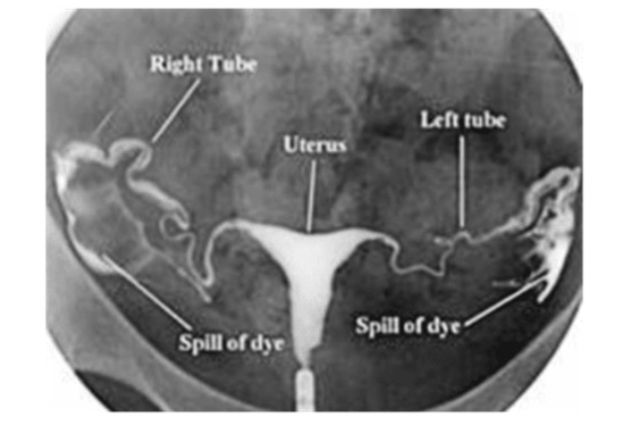
Disclaimer: The information provided in this article is based on my personal experience with 'Fertility issues' that I have faced and is intended for general knowledge and informational purposes only. My sole purpose in sharing this information is to provide insight to women facing similar challenges as me. It constitutes my medical journey and a detailed discussion about it. It does not constitute medical advice. Please consult with a qualified healthcare professional for any health concerns or before making any decisions related to your treatment.
Exploring the Unknown
Parenthood, if we go by definition says it is a state of becoming parents. But in actual life, becoming parents is more than just a feeling of joy. It is a wholesome experience. It is a journey from being just 'Partners to Parents'. However, this journey is not as beautiful for some couples like Me and My Partner.
Last year when we celebrated our 4th marriage anniversary, we received a common question as a gift from most of our wishers. "When are you giving us grandkids?" "Hey, for how long are you both going to enjoy?" Bothered by the inquiries, and after giving some thought to the questions, we decided to take action. So, we finally visited a gynecologist to find out "how to get pregnant", which led to a surprising discovery of pieces of information.
Introduction to Knowledge about Conception
On the first visit to the gynecologist, the doctor starts with some sets of questions for the couple like:
| Question asked to Female | Question asked to Male |
|
|
The questions that couples are asked together are like:
- Kind of contraception used in the past
- How long have you been trying to conceive?
- Questions are asked about the frequency and quality of sexual intercourse between the couple.
After the primary questionnaire and diagnosis, the doctor prescribes some set of tests for the couple for the next step in the journey.
The Tests
Diagnosis of any disease requires a thorough investigation and in medical sciences, the investigation starts with different types of tests prescribed for different diseases or conditions. In the course of identifying the issues related to fertility, a doctor prescribes some tests to the couple:
| Tests for female | Tests for male |
|
|
Significance of the tests prescribed by the doctor:
Test done on female
As part of my infertility diagnosis, I underwent the following tests.
Hormone Testing: The doctor recommended some tests to evaluate my hormone levels, as hormones play a crucial role in female fertility. The tests may include:
- FSH testing- Follicular Stimulating Hormone helps stimulate and grow eggs in ovaries. It is recommended to be done on the second or third day of the menstrual cycle to evaluate ovary function.
- LH level- Leutinizing Hormone in females is linked to ovarian hormone secretion and egg maturation. Its level can help determine when we (women) ovulate.
- AMH- Anti-Mullerian Hormone testing gives a very clear idea about ovarian function and egg reserve in a female.
- Prolactin- Its level is used to evaluate infertility in females. It also determines if a female is ovulating or not.
Thyroid testing: Sometimes infertility might be related to the thyroid gland. Too much or little thyroid hormone production may cause fertility problems.
HSG Test: Hysterosalpingography is an X-ray of the fallopian tube and uterus to detect any blockages if present. A special dye is injected inside the uterus and fallopian tube and an X-ray is taken.
Follicular Study: The doctor conducts an ovulation study to evaluate ovulation in females. It is a series of vaginal ultrasound scans that track the growth and development of ovarian follicles. It helped me to understand the concept of ovulation and track it in real-time.
Test done on male
As part of the infertility diagnosis, my partner underwent the following tests.
- Semen Analysis: One of the most important tests to check male fertility. It evaluates sperm count, motility, and morphology.
- Hormone testing: A blood test to evaluate testosterone hormone which plays a key role in male fertility.
Outcome
PTSD is real when it comes to taking tests and receiving its results. The same goes for medical tests too. However, in medical tests, we cannot expect anything but only pray for a result positive for us. While we hoped for positive results, the reality was different. For example, I was diagnosed with PCOD and found overweight, so my doctor asked me to reduce my weight. Also, on doing a follicular study in my natural cycle, we were shocked to find out that I was going through a condition called Anovulation (when an egg doesn't release from your ovary). This left me devastated.
It is said, "One must endure hardship before achieving their goals." For couples like us facing such challenges, our dream of becoming parents may take time, but it's certainly attainable with the right approach:
- Listening to the doctor and religiously following their advice.
- Taking prescribed medicines on time.
- Doing regular exercises, yoga, and meditation helps rejuvenate our mind and body and makes us prepared for our purpose.
- As a loving couple, remember to support and motivate each other. Your positive attitude can significantly impact your journey.
- And continue to pray, as your prayers can bring you peace and hope.
. . .
Reference:
- https://my.clevelandclinic.org/health
- https://www.mayoclinic.org/diseases
- https://www.drmoomjy.com/blog/hsg
- https://progyny.com/education/fertility

